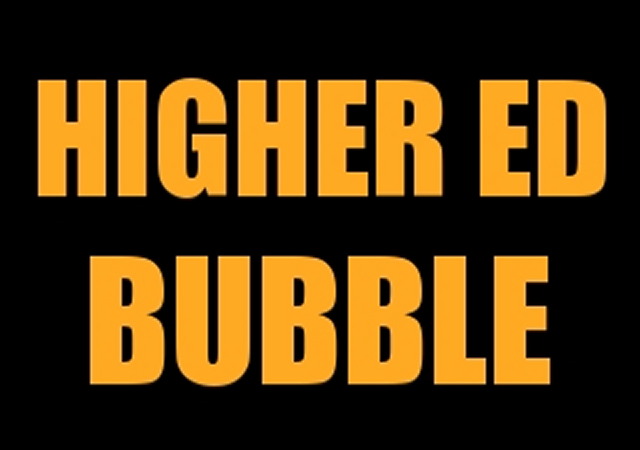Administrators at Universities of Wisconsin to Evaluate ‘Low-Enrollment’ Campus Programs
“I think some universities continue to look at program array and where they can reduce programs”

This article does not name specific programs that could be cut but we can all guess which ones they are, can’t we?
Wisconsin Public Radio reports:
Universities of Wisconsin to evaluate low-enrollment campus programs
Administrators with the Universities of Wisconsin are going to change the way they evaluate low-enrollment programs on campuses and take a more active role in how enrollment is managed.
The changes are based on recommendations from a $2.8 million system-wide third party financial review by Deloitte to assess finances on individual campuses.
The third part of the review was released Monday. Earlier this year, individual campus reviews were released.
“These reviews have helped us refine steps to eliminate structural deficits at a number of our universities and embark on a path of long-term financial stability,” said UW President Jay Rothman.
When the reviews began, 10 universities faced structural deficits. That number is now down to six. Rothman said some of the campuses had smaller budget holes to fill. And there were layoffs, voluntary retirements and other cost-cutting measures on other campuses, Rothman said.
“I think some universities continue to look at program array and where they can reduce programs,” Rothman said. “But by and large, each of them is taking a slightly different path to financial sustainability, but each of them is making great progress toward that goal.”
The final Deloitte report makes the case for more robust program array management.
Out of 646 undergraduate degree programs analyzed, 148 had no substantial program changes reported since fall 2018. But those 148 programs had declined in enrollment by five times or more than the average overall enrollment across the UW system.
Program offerings across the system — with the exception of UW-Madison — have grown the number of undergraduate majors by 6.8 percent, despite the number of bachelor’s degree conferrals declining by 9.2 percent.
Donations tax deductible
to the full extent allowed by law.








Comments
Here are some good worthless programs at Wisconsin:
https://gws.wisc.edu/
https://sociology.wisc.edu/staff-type/race/
https://education.wisc.edu/about/diversity-inclusion/
I’m sure I could find more, similar to these, at the various campuses.
lets guess which programs
hmmm
maybe Nuclear Physics
Most of what’s taught that’s worthwhile at most every university can be done via audio and/or video recordings.
Followed by quizzes.
If you were in college today, taking a course about, say, WWII, would you prefer previously recorded lectures and readings assigned by Victor Davis Hanson? Or some random woke 25-year-old numbnut.
Students are in college to prepare for a career not to learn history.
It is harsh but if you asked most college students they would say both are equally worthless to my path to becoming (Lawyer? Doctor? Engineer?)
1. Did you grow up in the USA? Serious question. Regardless of one’s major, many college students take one or more courses in history, sociology, political science, anthropology, English, others … and almost all of these courses — especially at intro level and intermediate level — could be done via audio and/or video recordings of known-competent professors.
2. Many colleges require at least some coursework outside one’s major — chemistry majors and biology majors and engineering majors at most colleges cannot avoid taking some Humanities , at least some Social Sciences. Imho it seems a colossal waste of money to pay hundreds of inexpensive non-tenured lecturers all over the USA to teach these classes — after all, Shakespeare’s plays haven’t changed very much in the past few decades, now WWI, nor WWII, etc.
3. It’s been my own impression for too many years that far too many high schoolers apply to college without thinking it through. They may say they’re in college to pursue a career — but in fact their studies do not in fact lead to a career. The vast, vast majority of college students do not become doctors or lawyers or engineers.
4. Regardless of all of the above, I’m quite certain that Intro Biology courses and Intro Physics and Intro Engineering etc. could mostly be replaced by audio and/or video recordings of known-competent instructors. With quizzes. Not completely replaced. Largely replaced.
If it was not so tragic, $20,000 or $50,000 or $80,000 for a year of college would be the stuff of a bad SNL sketch.
It does not have to be this way.
What started in small liberal arts schools that spread to regional public universities has now reached research I public universities. Good.
Why should a university offering advanced degrees in business and finance have to spend $3M for an outsider to review their financial plan?